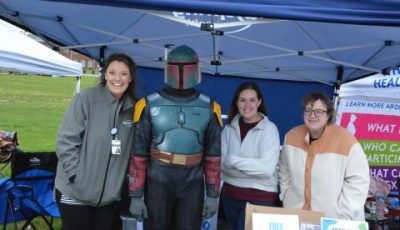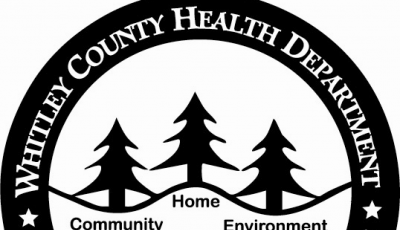Whitley County Health Dept. getting $635,000 grant for Rural Responses to the Opioid Epidemic
The Whitley County Health Department is hoping that a recent $635,000 grant for a Rural Responses to the Opioid Epidemic demonstration project can yield significant results.
“Some times you get a little tiny grant with a big goal. Those are really tough. This comes with resources that I think can really make a huge difference for us,” noted Whitley County Health Department Public Health Director Marcy Rein.
“I am super happy that all of the conversations that I have had with the partners, who are going to work with us on this, is everyone comes to the table understanding that we can’t do this alone. This impacts us all, and we all can put our heads together and find common ways forward to make real change.”
Whitley County has a significantly higher opioid death rate that the state or national rates. In 2018, there were 117 emergency department visits for acute drug poisoning. In addition, 38 infants were born with neonatal abstinence syndrome, a group of health problems that happen when babies are exposed to addictive substances in the mother’s womb.
“This drug epidemic has touched every person in our county. This grant is an incredible opportunity for Whitley County to have needed resources to work together to break the cycle of substance use and help our community to heal,” Rein said.
Rein noted that the grant is a rural grant, and she thinks officials looked at data and the number of people potentially impacted in this area.
“Appalachia clearly has significantly been impacted. I think they are interested in seeing what we can do in this little community,” Rein said.
Managed by the Institute for Intergovernmental Research (IRR) on behalf of the U.S. Department of Justice, Bureau of Justice Assistance (BJA), the U.S. Department of Health and Human Services, Centers for Disease Control and Prevention (CDC), and the State Justice Institute (SJI), this project seeks to leverage collaboration between public health, public safety, and behavioral health partners to address the opioid epidemic in Whitley County.
Led by the Whitley County Health Department, an inter-agency leadership team composed of representatives from the Whitley County UNITE Coalition, Dayspring Health, Inc., the City of Corbin Police Department, the Kentucky 34th Circuit Court, and the Commonwealth Attorney’s Office will plan project activities based on current gaps in prevention, treatment, and recovery services.
The project will rely on collaboration with community partners to initiate new activities or augment existing efforts to facilitate data sharing, enhance prevention and education programs, enhance collaborations, and expand services to help people start and stay in recovery.
Rein noted that transportation is a gap that frequently comes up in rural Appalachia and it is definitely a factor for people in addiction recovery.
“Transportation comes up very frequently as an issue. For people to be able to participate in drug court, they have to have transportation. For people to be able to get to intensive outpatient treatment, they have to have transportation,” Rein said.
“We find that here with our activities that people have a hard time getting to places. That comes up a lot. We have the opportunity to explore the options and try and come up with something that might work to address that.”
Another gap that may be looked at involves intervention with young children found in homes with substance use, whether the children are discovered when police, social workers or emergency services respond to their home.
She added that it is important to have “early identification of those circumstances and then intervening in some way with the children to sort of break that cycle … We want to break the intergenerational piece of it so there is an opportunity to explore some of those things so that kids, who grow up in homes with parents and relatives that use substances, don’t grow up to use substances.”
Rein said that she is also interested in looking at what the options are around adverse childhood experiences, and having early childhood intervention to build support for children to break that cycle.
“I am sure that is a conversation that we will have,” Rein added.
Rein said that one thing currently in place is a child fatality review committee, and she would be interested in possibly creating an overdose fatality review committee where cases are reviewed to see if there are opportunities to prevent similar circumstances.
Rein noted that the Department of Justice has stated one of their goals with this grant project is to look for innovation, and that this is a demonstration project.
“They are looking for communities to come up with innovative ways to work together, and come up with something that is effective and that really makes a difference,” Rein said.
“I think what we want to do with our leadership team is sit down and look at the data we have and experiences from each of our perspectives.”
The Whitley County grant award was one of only 21 awards in the nation, and it is one of only three awards handed out in Kentucky with the others being to Northern Kentucky University and Marcum and Wallace Hospital.
Rein admits that she was surprised Whitley County received the grant, and thought it was a long shot. Initially only eight awards were supposed to be handed out nationally.
The project is funded through September 2021.
Agencies who work within Whitley County, who would like to be included in project updates or partner opportunities can email the Project Coordinator, Kathleen Croley at annak.croley@ky.gov.







